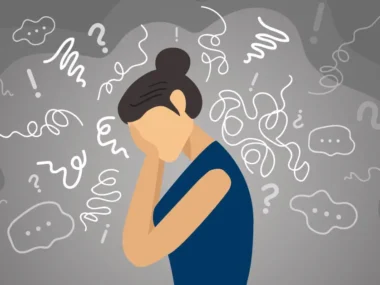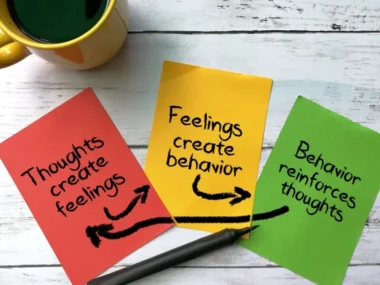In today’s fast-paced, technologically advanced world, anxiety disorders are more common than ever. The constant worry, racing thoughts, and uneasiness that many people experience can have a considerable negative influence on their everyday lives.
While there are many elements that contribute to anxiety, our food is one that is sometimes ignored. Yes, our mental and physical health can be significantly impacted by the food we eat.
It’s critical to understand the connection between diet and anxiety in a culture where fast food and sweet snacks predominate on our plates.
In order to help you better understand how dietary choices can either worsen or reduce anxiety symptoms, this article seeks to throw some light on this connection. We may arm ourselves with effective tools for anxiety management and general wellness by understanding the complex interactions between what we eat and how we feel.
Join us as we explore the fascinating topic of the connection between diet and anxiety, whether you have personal experience with anxiety or are just interested in how nutrition affects mental health. Let’s look at what you need to know to make wise decisions and start on the road to more peace of mind.
What is Anxiety?
In today’s world, anxiety has evolved into a widespread issue. It goes beyond simply feeling a little anxious or tense before a big occasion. A variety of conditions known as anxiety disorders are characterized by excessive and enduring worry, fear, and apprehension.
Physical manifestations of these emotions include shortness of breath, a quick heartbeat, and even panic attacks. Anxiety has effects on our physical health, interpersonal connections, and general quality of life in addition to causing mental suffering.
A comprehensive strategy is needed to treat anxiety, one that takes into account lifestyle decisions and, yes, even dietary intake. It is commonly known that our diet has a significant impact on how we feel. Even though the link between diet and physical health is well known, recent study has shown how important nutrition is for mental health as well.
The Role of Diet in Mental Health
We frequently hear the expression “You are what you eat,” and it is true when it comes to our mental health. The chemistry of our brain and the synthesis of neurotransmitters, the chemical messengers that control our mood, emotions, and cognition, are significantly influenced by the foods we eat.
In recent years, the subject of nutritional psychiatry, which examines how diet affects mental health, has grown in popularity.
The components of our body and brain are provided by the food we eat. Vitamins, minerals, proteins, carbs, and fats are among the nutrients that are crucial for sustaining a healthy mood and optimum brain function. On the other hand, a deficiency in essential nutrients or an overabundance of harmful food options can upset the delicate balance and cause mental health problems, including anxiety.
Nutritional Factors Affecting Anxiety
The gut-brain axis, or the complicated relationship between our gut and our brain, is one fascinating field of research. Our mental health may be impacted by the condition of our gut microbiome, the colony of microbes that lives in our digestive tract. Unbalances in gut bacteria have been linked to anxiety and other mood problems, according to studies.
The significance of providing our bodies with gut-friendly meals that support a healthy microbiota is highlighted by this discovery.
In addition to the gut-brain axis, certain macronutrients and micronutrients are crucial in the management of anxiety. For example, carbohydrates are necessary for the synthesis of serotonin, a neurotransmitter that controls mood.
Consuming whole grains and other complex carbohydrates can help control blood sugar levels and promote a more balanced emotional state. The amino acids required for the synthesis of neurotransmitters like dopamine and norepinephrine, which are important in regulating mood and the stress response, are found in proteins.
Omega-3 fatty acids, which are included in nuts and fatty fish, have also been connected to fewer symptoms of anxiety.
The Benefits of a Healthy Diet for Anxiety Management
The idea that adopting a balanced diet can be a helpful strategy for managing anxiety is being supported by a growing body of research. A diet high in nutrients not only supplies the elements needed for ideal brain function, but it can also lower inflammation in the body, which has been linked to anxiety. You can complement traditional therapy methods with a natural diet that includes foods that reduce anxiety.
So what meals can help with anxiety? Increase your consumption of leafy greens like spinach and kale, which are high in nutrients like folate and magnesium, which are proven to improve mood.
Antioxidants found in blueberries and other vibrant fruits help fight oxidative stress, which can contribute to anxiety. Don’t underestimate the benefits of lean proteins like chicken, turkey, and tofu because they provide necessary amino acids for the creation of neurotransmitters.
Dietary Approaches for Anxiety Reduction
There is no one solution that works for everyone, although some dietary habits have shown potential in treating anxiety symptoms. Anxiety levels have been connected to the Mediterranean diet, which prioritizes whole grains, vegetables, fruits, legumes, fish, and healthy fats like olive oil. A well-balanced combination of nutrients, antioxidants, and anti-inflammatory substances is provided by this method.
The anti-inflammatory diet is a second nutritional strategy that is gaining popularity. Anxiety is one of the mental health conditions that has been linked to chronic inflammation in the body. A diet that is anti-inflammatory focuses on whole foods, particularly those that are high in fiber, antioxidants, and omega-3 fatty acids, which can help to reduce inflammation and promote general health.
But keep in mind that each person’s requirements and reactions to various diets can differ. It’s crucial to pay attention to your body and seek out individualized advice from a licensed dietician or healthcare provider.
Lifestyle Factors and Anxiety
While nutrition is vital for managing anxiety, it’s also important to take other lifestyle aspects into account. Incorporating stress reduction strategies like mindfulness, meditation, and regular exercise might support dietary changes since chronic stress is a substantial factor to anxiety.
Exercise causes the release of endorphins, which are our bodies’ natural mood enhancers and help us feel peaceful. Prioritizing good sleep is also essential because it can make anxiety symptoms worse. Establishing routines and using appropriate sleep hygiene techniques can help with mental health.
Seeking Professional Guidance
It’s critical to keep in mind that seeking expert advice can be quite beneficial while dealing with anxiety or any other mental health condition. A certified dietitian or healthcare expert can offer you individualized advice that is catered to your particular requirements and circumstances.
They can guide you through dietary adjustments, track your development, and make sure you’re getting enough nutrients while effectively controlling anxiety. Working together with a mental health expert, such a therapist or counselor, can also offer helpful support and a thorough approach to anxiety control.
Final Thoughts
Exploring the connection between diet and mental health is crucial now more than ever in a society when anxiety is on the rise. By being aware of the significant influence that diet has on anxiety symptoms, we may better equip ourselves to make decisions that will improve our wellbeing. Along with other lifestyle changes, adopting a healthy diet rich in foods that reduce anxiety can help build mental toughness and promote emotional equilibrium.
Keep in mind that every step you take toward a healthy diet is a step toward more tranquility. So let’s go out on this trip together in search of a life free from the shackles of anxiety, feeding our bodies and brains along the way.
Resources
Books:
- “The Anti-Anxiety Diet: A Whole Body Program to Stop Racing Thoughts, Banish Worry and Live Panic-Free” by Ali Miller, RD, LD, CDE
- “The Happiness Diet: A Nutritional Prescription for a Sharp Brain, Balanced Mood, and Lean, Energized Body” by Tyler G. Graham and Drew Ramsey, MD
- “The Mind-Gut Connection: How the Hidden Conversation Within Our Bodies Impacts Our Mood, Our Choices, and Our Overall Health” by Emeran Mayer, MD
Research Papers:
- Jacka, F. N., Pasco, J. A., Mykletun, A., Williams, L. J., Hodge, A. M., O’Reilly, S. L., … & Berk, M. (2010). Association of Western and traditional diets with depression and anxiety in women. American Journal of Psychiatry, 167(3), 305-311.
- Opie, R. S., Itsiopoulos, C., Parletta, N., Sanchez-Villegas, A., Akbaraly, T. N., Ruusunen, A., & Jacka, F. N. (2017). Dietary recommendations for the prevention of depression. Nutritional Neuroscience, 20(3), 161-171.
- Marx, W., Moseley, G., Berk, M., & Jacka, F. (2017). Nutritional psychiatry: the present state of the evidence. Proceedings of the Nutrition Society, 76(4), 427-436.
Websites:
- Anxiety and Depression Association of America (ADAA): www.adaa.org
- Harvard Health Publishing: www.health.harvard.edu
- International Society for Nutritional Psychiatry Research (ISNPR): www.isnpr.org
Please note that while these resources provide valuable insights, it’s always important to consult with healthcare professionals or registered dietitians for personalized advice and guidance related to your specific situation.





